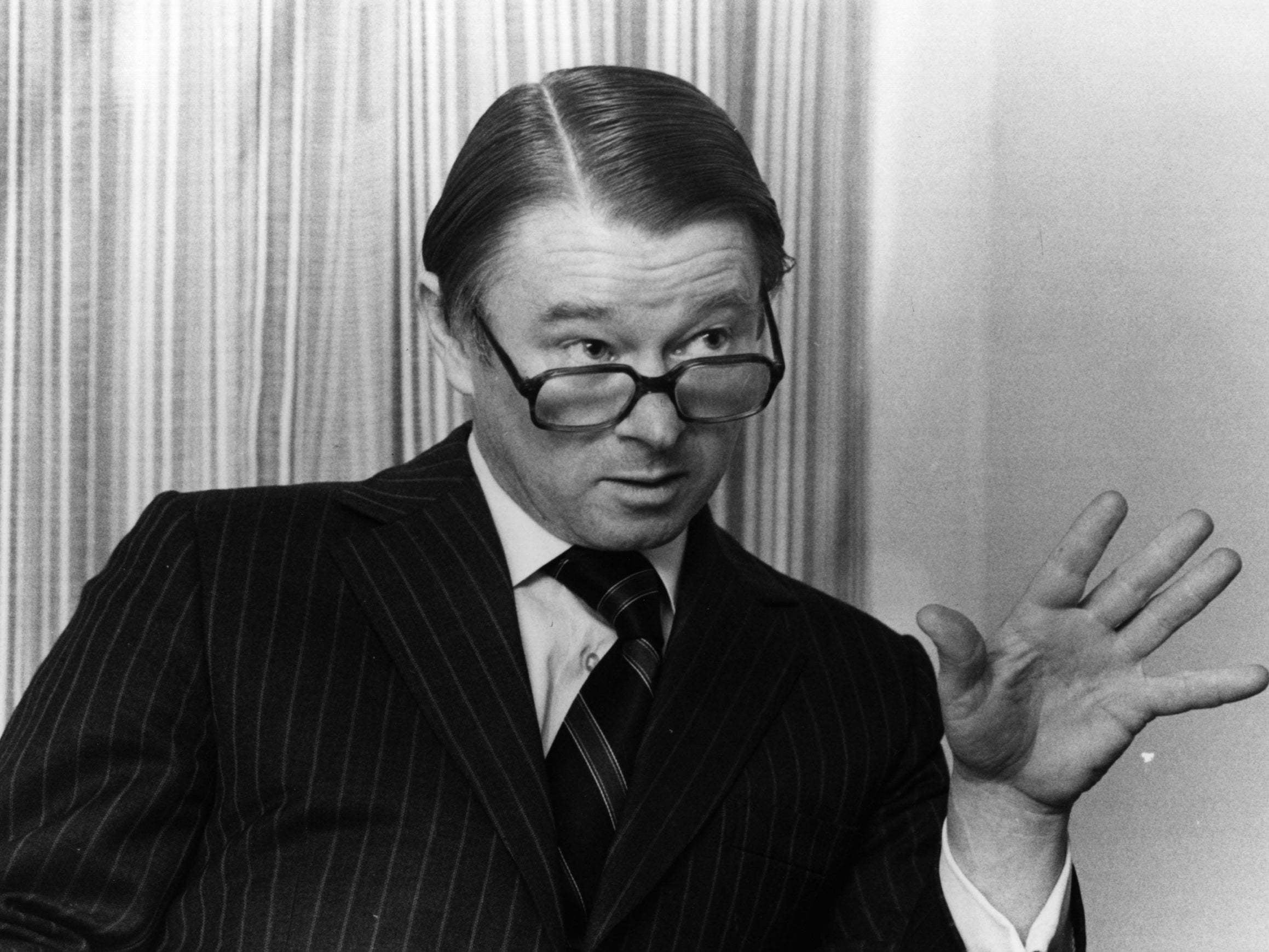Michael Edwardes: Hard-nosed British Leyland boss who fought the unions and slashed the workforce
His combative stance paved the way for more turbulent industrial relations in the Thatcher era

Michael Edwardes, who has died aged 88, was the chair of the car giant British Leyland during the critical period of the company’s transformation from 1977 to 1982. An uncompromising and combative leader, he pitched himself head to head with the unions on many occasions, and won.
Edwardes was born in 1930 in Port Elizabeth, South Africa, the son of Audrey and Denys Edwardes, the owner of a car repair centre. He was educated at St Andrew’s College, Grahamstown, and went on to read law at Rhodes University.
Upon graduating he set up a small gardening company but was encouraged by a friend of his father’s to join Chloride Batteries in the UK. After time spent with the same company at its South Africa office, he joined the UK board in 1969, rising to chair just five years later.
Edwardes arrived at British Leyland (BL) in November 1977, appointed by the National Enterprise Board, an organisation created by Labour leader Harold Wilson to manage the publicly owned industries. BL was at the time the largest manufacturer of vehicles in the UK, a part-nationalised carmaker formed of parts of the previous Austin, Morris, Rover, Triumph and Jaguar brands.
On the day of his arrival in the new role, workers at the Triumph “Speke 2” plant on Merseyside, producing the TR7 sports car, walked out. Edwardes resolved to tackle the difficulties that had resulted in the lost production of 250,000 BL vehicles the previous year. But it was not only industrial relations issues which threatened the company’s survival: BL was running out of money and the cars were not well made.
Edwardes recalled in his memoir the challenges he faced, including “an unattainable corporate plan for 1978 and beyond; an inadequate product range; serious design defects even in new models, compounded by lack of quality and poor reliability.”
The so-called “Edwardes Plan”, a strategy document outlining the future direction for the company, anticipated the loss of some 12,000 jobs. While many workers were ready to go along with the plan, in November 1979 BL sacked Derek Robinson, the union convenor known in the media as “Red Robbo”. The company alleged “gross misconduct” but it was his support for the pamphlet A Trade Union Response to the Edwardes Plan, with its blunt criticism of the company’s management, that had triggered his dismissal.
Having raised the necessary rescue funding from clearing banks, Edwardes and the management embarked on the development of the next generation of the company’s vehicles. He closed the troublesome “Speke 2” plant, moving TR7 production to Canley.
The Metro, launched in October 1980, was the first of a new range of vehicles to come off the production line at Longbridge, heralding a renaissance for BL. “At last a British car that no one needs apologise for”, said Car magazine. For a time it was Britain’s most fashionable vehicle, with two million sold during its 17-year lifespan.
However, the strikes and quality issues continued. Despite the £275m injected into BL, the company never made a profit. Edwardes, who left the company in 1982 at the end of a five-year contract, had seen his task not only in terms of BL but of the country as a whole. As he observed: “Every minor dispute is carried out in full public glare; BL is the anvil on which every one of society’s ills is beaten out.”
In retrospect, it seems clear that his uncompromising stance emboldened other industry leaders to take on the unions. For example, when Edwardes’ former BL colleague, Ian MacGregor, joined the National Coal Board as chair, he initiated pit closures and job cuts in defiance of the mining unions.
Edwardes’ memoir, Back from the Brink (1983), provides his perspective on the BL rescue and his pivotal role within it. He was knighted in 1979 for services to British industry.
On leaving BL in 1982, Edwardes took on a variety of senior roles at Mercury, ICL, Dunlop, Chloride and Charter Consolidated. A sports enthusiast, he was president of the Squash Rackets Association from 1991 to 1995.
He is survived by his second wife Sheila Witts and by three daughters from his marriage to Mary Finlay, who died in 1999.
Michael Edwardes, businessman, born 11 October 1930, died 15 September 2019
Subscribe to Independent Premium to bookmark this article
Want to bookmark your favourite articles and stories to read or reference later? Start your Independent Premium subscription today.

Join our commenting forum
Join thought-provoking conversations, follow other Independent readers and see their replies